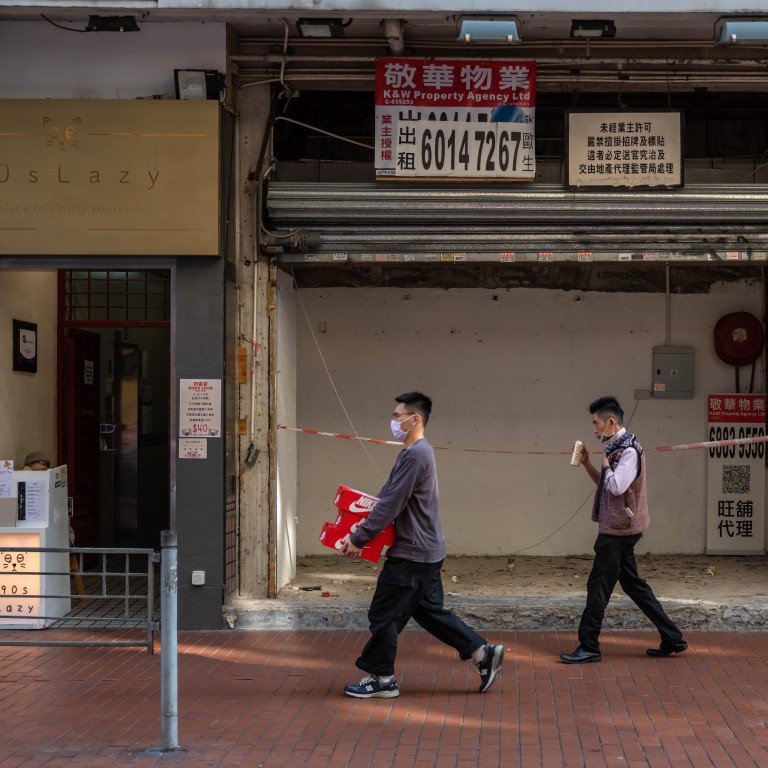
Hong Kong’s street shops in flux as pandemic upends businesses, creates new opportunities
- April saw 186 shop transactions, an 18 per cent increase over March, stretching a rally of three months and marking a 56-month high
- The worst has passed, as far as shops are concerned, market observer says
Some investors, including property industry heavyweights, are buying shops at low prices while others are selling them, partly because some businesses are struggling. According to the Land Registry, shop transactions rose for a third month in April, adding 18 per cent over March to 186, and marking a 56-month high.
“Many of those active before the coronavirus outbreak are [now] selling shops. Very often, those who sell shops are in industries affected [by the pandemic]”, said Edwin Lee, founder and chief executive of Bridgeway Prime Shop Fund Management.
Retail sales up 12.1pc in April, but recovery of sector is seen to slow
Many of those who are buying now are those who had stayed silent in the market for a long time and wanted to “buy low”, Lee said. There are also new investors who are exploring alternative property investments, or shops for their own use.
E-commerce, particularly during the pandemic, had also triggered a change of fortunes. Every consumption market sees changes, said Lawrance Wong, founder and president of Many Wells Property Agent. “This time, the difference is big,” he said. “This does not [diminish] the importance of shops. Shops will be [used] for new industries.”
Wong has spent about HK$168 million (US$21.7 million) on three shops since February. These include a shop in Percival House, across Times Square in Causeway Bay, which cost him HK$66.8 million.
“We think the shop market has bottomed out. So we started to enter the market for investments. It starts with prime [properties]. Shops in core districts are particularly valuable – it was not easy to buy one in the past 10 years,” Wong said. “In the last two years, there has been social unrest and the coronavirus outbreak. So the market was very unusually battered, time after time.”
Shih Wing-ching, founder of the Centaline Group, said his charity foundation bought a shop for recurrent income recently. The 1,400 sq ft property at Lee Hing Building in Mong Kok cost about HK$47 million.
“The timing was about right, as rents had fallen quite a lot. [But] the pandemic is about to fade -investors need to take a step early [and] consider the prospects,” Shih said. He also attributed the “difficult” business of shops to a wave targeting and scaring away mainland Chinese consumers during the city’s anti-government protests.
But Beijing will, in the long term, encourage people to visit and shop in Hong Kong as “China and the US are struggling” and “Beijing wants to prove that, even under US sanctions, Hong Kong has room for development”, Shih said.
Some investors, however, are looking to shrink their portfolios. The family of “shop king” Tang Shing-bor, who died recently, has set its asking prices for 39 properties worth about HK$4.15 billion that it is putting up for sale, according to a list recently circulated by agents and confirmed by the Stan Group, Tang’s company.
The most valuable property on the list is the 14-storey Woon Yin Building in Wan Chai, which has been priced at HK$390 million. It was listed by Savills in September last year at an indicative price of HK$400 million.
“The group will continue to sell noncore projects in response to market opportunities, as well as actively look for local potential investment projects to optimise its investment portfolio,” Stan Group’s spokeswoman said.

